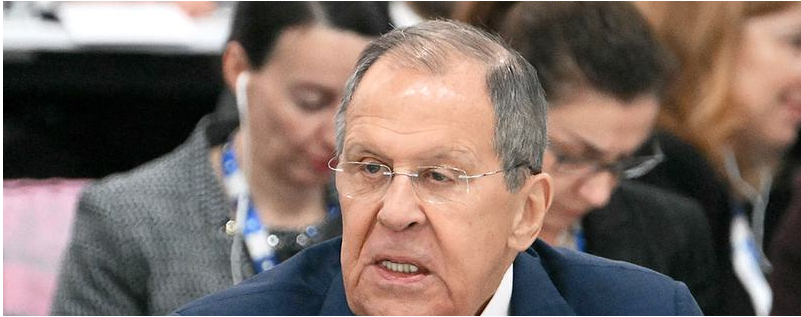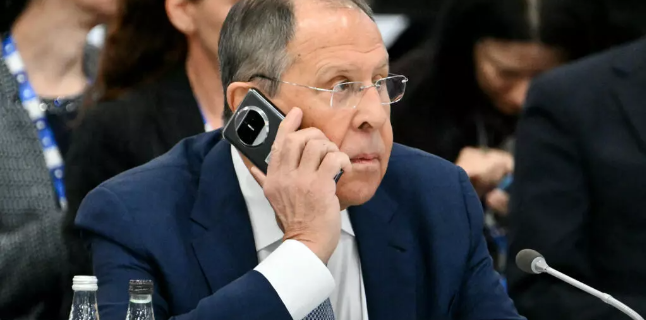1. Introduction
Malta, 2024 meeting of the Organization for Security and Cooperation in Europe (OSCE) in Malta marked a significant diplomatic moment, as Russian Foreign Minister Sergey Lavrov attended the conference alongside representatives from the United States and Ukraine. This gathering, held in the midst of the ongoing conflict in Ukraine, provided a rare platform for direct dialogue between the parties involved in one of the most pressing geopolitical crises of the 21st century.
The OSCE, a regional security organization with 57 participating states, has long been an arena for dialogue on issues of security, human rights, and conflict prevention in Europe. However, the conflict in Ukraine, now well into its second year, has cast a long shadow over the organization’s efforts to mediate and manage security challenges in the region. The presence of top diplomats from Russia, Ukraine, and the U.S. at the OSCE meeting in Malta was a clear indication that, despite the ongoing war, diplomatic channels remain crucial in the pursuit of peace and stability.
In this article, we will explore the significance of this meeting, the role of the OSCE in the context of the Russia-Ukraine war, and the broader implications for European security and international relations.  For the more information click on this link
For the more information click on this link
2. The OSCE: A History of Diplomacy and Security
Founded in 1975 as the Conference on Security and Cooperation in Europe (CSCE), the OSCE was established with the goal of improving relations between East and West during the Cold War. Its purpose was to foster dialogue on security, arms control, human rights, and economic cooperation in Europe. Today, the OSCE remains the world’s largest regional security organization, with its 57 participating states spanning Europe, Central Asia, and North America.
The OSCE is primarily known for its efforts in conflict prevention, crisis management, and post-conflict rehabilitation. The organization has played key roles in monitoring elections, promoting human rights, and mediating disputes. In recent years, its involvement in the Ukraine crisis has been a focal point, particularly through its Special Monitoring Mission to Ukraine, which was established in 2014 following Russia’s annexation of Crimea and the outbreak of conflict in eastern Ukraine.
The OSCE has long promoted a diplomatic approach to resolving conflicts, and its meetings, such as the one in Malta, offer a rare opportunity for dialogue among parties who are often at odds. However, the OSCE’s ability to influence the course of the Ukraine conflict has been limited, given the entrenched positions of Russia, Ukraine, and their respective allies.
3. The Role of Sergey Lavrov in the OSCE Dialogue
Sergey Lavrov, Russia’s long-serving foreign minister, is a central figure in Russian foreign policy and diplomacy. Known for his hardline stances and direct approach to international relations, Lavrov’s attendance at the OSCE meeting in Malta was noteworthy, especially given the high tensions surrounding the war in Ukraine.
Lavrov’s involvement in the OSCE talks was seen as an opportunity for Russia to assert its position on the Ukraine conflict and other security issues affecting Europe. Despite Russia’s international isolation due to its actions in Ukraine, Lavrov’s participation was a reminder of Russia’s continued influence in the region and its interest in maintaining diplomatic engagement with European and Western powers.
At the Malta meeting, Lavrov’s remarks emphasized Russia’s view of the war in Ukraine as a defense of its sovereignty and security. He condemned Western sanctions against Russia, accusing the U.S. and its allies of undermining Russia’s interests and security. Lavrov also reiterated Russia’s demands for security guarantees, including the cessation of NATO’s eastward expansion, which Moscow views as a direct threat to its territorial integrity.
4. Ukraine’s Representation at the OSCE: A Focus on Security and Sovereignty
For Ukraine, the OSCE meeting in Malta represented an important opportunity to advocate for its sovereignty and territorial integrity on the international stage. Ukrainian Foreign Minister Dmytro Kuleba led Ukraine’s delegation, focusing on the need for greater international support in the face of Russia’s ongoing aggression.
Ukraine’s participation in the OSCE meeting was crucial not only for diplomatic reasons but also to send a message to the international community about the continuing threat posed by Russia. Kuleba emphasized Ukraine’s commitment to reclaiming its occupied territories, including Crimea and the eastern regions, and called for more decisive action from the OSCE and its member states in supporting Ukraine’s defense efforts.
Ukrainian officials have consistently argued that Russia’s invasion of Ukraine is not only an attack on their country but also on the principles of international law, sovereignty, and territorial integrity. Ukraine’s diplomatic efforts at the OSCE meeting focused on securing more military and economic aid from Western allies, as well as pressing for stronger sanctions against Russia to force a change in Moscow’s approach to the conflict.
5. The U.S. and Its Role in the OSCE Discussion
The United States, as a major player in European and global security, also played a significant role at the OSCE meeting. Represented by U.S. Secretary of State Antony Blinken, the U.S. delegation focused on reaffirming its support for Ukraine and condemning Russia’s actions in Ukraine. The U.S. has been one of Ukraine’s strongest backers since the conflict began, providing military aid, economic support, and leading international efforts to impose sanctions on Russia.
At the OSCE meeting in Malta, Blinken underscored the U.S. commitment to supporting Ukraine’s sovereignty and territorial integrity. He reiterated the West’s stance that Russia must be held accountable for its actions and that any lasting peace must include Russia’s withdrawal from Ukrainian territories. The U.S. delegation also highlighted the importance of NATO’s continued support for Ukraine, as well as the need for international unity in the face of Russia’s aggression.
The U.S. also emphasized the importance of upholding the principles of the OSCE, including respect for sovereignty, territorial integrity, and the peaceful resolution of conflicts. While Blinken’s remarks were diplomatic, they made clear that the U.S. would not back down in its support for Ukraine, and that Russia’s actions were a direct challenge to the international order.
6. Key Discussions and Tensions at the OSCE Meeting
The discussions at the OSCE meeting in Malta were marked by sharp divisions between Russia and the Western powers. Russia’s position remained consistent with its broader narrative of opposing NATO’s expansion and seeking security guarantees. Lavrov’s comments on the need for a new European security architecture were echoed in his calls for a halt to NATO’s activities near Russia’s borders.
For Ukraine, the OSCE meeting provided a platform to reinforce the message that its sovereignty must be respected and that Russia’s occupation of Ukrainian territories must end. Ukrainian diplomats used the forum to continue pressuring the international community for increased support, Malta, both in terms of military aid and diplomatic pressure on Russia.
The U.S., along with its European allies, strongly rejected Russia’s calls for security guarantees and maintained that Ukraine’s sovereignty and territorial integrity were non-negotiable. The Western delegations were firm in their support for Ukraine, reaffirming that sanctions on Russia would remain in place until Russia ceases its military operations and engages in meaningful negotiations.
The OSCE meeting thus became a stage for ideological and diplomatic battles, Malta, with each side presenting its vision for European security and the resolution of the Ukraine conflict.
7. The Future of OSCE’s Role in the Ukraine Conflict
The OSCE’s role in the Ukraine conflict has been limited by the deepening divide between Russia and the West. While the OSCE’s efforts to monitor the conflict and promote dialogue have been valuable, the organization has struggled to exert significant influence over the course of the war. The OSCE’s role in facilitating peace talks has been sidelined by the intransigence of both Russia and Ukraine, and the ongoing military support provided to Ukraine by the West has complicated diplomatic efforts.
Nevertheless, the OSCE remains an important platform for dialogue, and the presence of Lavrov, Kuleba, and Blinken at the Malta meeting highlighted the importance of maintaining diplomatic channels open, Malta, even amid war. The OSCE’s ability to facilitate a lasting peace in Ukraine remains uncertain, but its continued efforts to foster dialogue and promote security in the region will be crucial in the coming years.
8. Implications for European Security
The OSCE meeting in Malta also served as a reminder of the broader security implications of the Ukraine conflict for Europe. The war has already led to significant changes in the security landscape of Europe, with countries like Sweden and Finland seeking NATO membership and the European Union grappling with the consequences of Russia’s aggression. The conflict has also led to a reassessment of defense policies across the continent, with many European nations increasing military spending and strengthening alliances with the U.S. and NATO.
The growing military and political divide between Russia and the West is likely to have lasting consequences for European security. The OSCE, while unable to resolve the conflict directly, Malta, will continue to play an important role in managing tensions and promoting security cooperation in Europe.  For the more information click on this link
For the more information click on this link
9. Conclusion
The OSCE meeting in Malta, attended by Russia, the U.S., and Ukraine, was a significant diplomatic event in the ongoing conflict between Russia and Ukraine. It highlighted the deep divisions between the parties and the complexity of resolving the crisis. While the OSCE’s role in directly ending the conflict remains limited, Malta, the meeting underscored the continued importance of dialogue in navigating this highly contentious issue.
As the conflict in Ukraine continues to shape the geopolitical landscape of Europe and the world, the OSCE will remain an important forum for discussing security, sovereignty, Malta, and the future of international relations in the region. The challenges facing the OSCE in addressing the Ukraine conflict are immense, but the organization’s commitment to fostering dialogue and diplomacy remains an essential aspect of its mission.
The stakes in the OSCE’s efforts are high, and the outcome of the ongoing tensions between Russia, Ukraine, and the West will have profound implications for global security and the international order for years to come. ALSO READ:-Bangladesh Court Bans Broadcast of Sheikh Hasina’s ‘Hate Speech’ – A Legal and Political Controversy 2024




